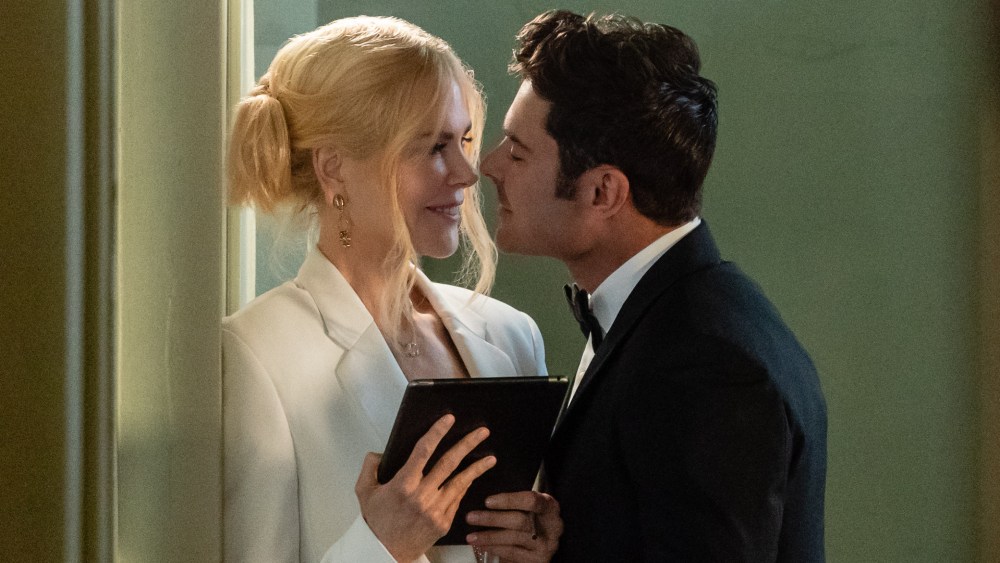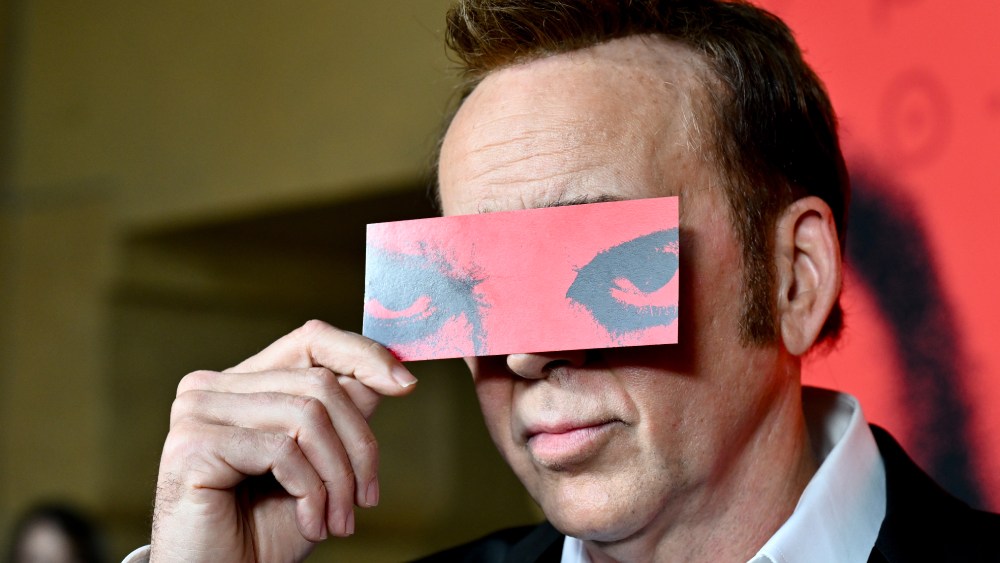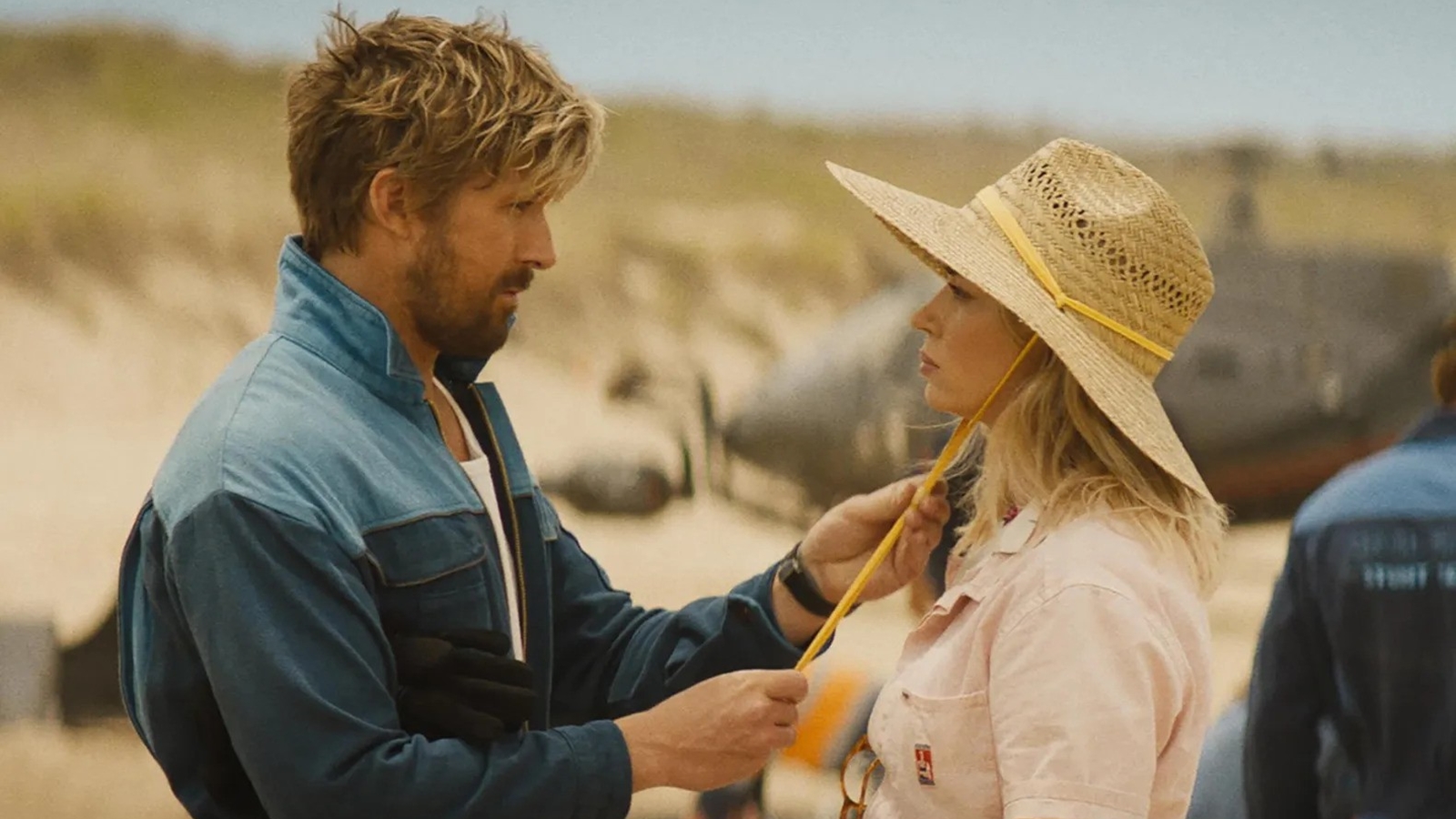[ad_1]
Among the perennial reasons we go to the movies is the onscreen heat between impossibly charismatic stars. The summer of 2024 has delivered the goods in that department so far: Consider the sweltering Anne Hathaway-Nicholas Galitzine romance “The Idea Of You,” the disarming, post-Barbenheimer pairing of Ryan Gosling and Emily Blunt in “The Fall Guy,” Zendaya, Josh O’Connor and Mike Faist’s scorching triangle in “Challengers,” or “Hit Man” turning Glen Powell and Adria Arjona into eager bedfellows. On paper, Richard LaGravenese’s “A Family Affair” has every ingredient to join this elite list. Sadly, the film plays more like an artless quickie than a fully fleshed-out romance.
It’s a mystery how little chemistry there is to be found here between Nicole Kidman and Zac Efron, two of Hollywood’s most magnetic stars. In fact, their courtship and attraction unfold so ineptly throughout LaGravenese’s contemporary romantic comedy that one can’t help but miss the duo’s previous collaboration, Lee Daniels’ 2012 campfest “The Paperboy,” which packed more steam even in its throwaway moments than “A Family Affair” manages in its key intimate scenes.
Written by debuting scribe Carrie Solomon, this messy film tells a multigenerational story, with Joey King leading proceedings as Zara Ford, a twenty-something Tinseltown resident with big dreams of becoming a major film producer. For now, like most early-career showbiz hopefuls, she’s stuck in a lowly assistant job. Her boss? Superstar Hollywood heartthrob Chris Cole (an uncharacteristically detached Efron), for whom she seems to do everything: pick up his dry cleaning, go on grocery runs, advise him on screenplays, rush expensive breakup gifts to his multiple soon-to-be-ex-girlfriends to prevent a scene, and so on. Not only does the job seems like a 24/7 gig, it also isn’t creatively rewarding. For starters, Zara doesn’t approve of Chris’s high-concept projects — “Die Hard” meets “Miracle on 34th Street” meets “Speed,” for example — and she is so over his professional insecurities. If only he would just listen to her instincts.
On the plus side, Zara has loving support from her mother Brooke (Kidman), a famous writer, at whose palatial estate she still lives expense-free. But she’s unhappy, even angry, as she feels she is ready for the next step in her career — whether as an associate producer, or running Chris’s company after only a couple of years of work as an assistant. (Kids these days.) For a while, no one — not even her spirited best friend Genie (Liza Koshy) — challenges Zara’s privileged worldview, at least until her self-centered personal and professional freakouts become too much to tolerate.
What sets off Zara’s downward spiral is her job resignation, and the spontaneous romance that sparks between Chris and Brooke — the former, a lonely man worshipped but not understood by millions, the latter, jadedly single since the death of Zara’s dad more than a decade ago. Seemingly acting out of protective instincts for her mother — after all, she’s seen what a despicable womanizer Chris can be — Zara complains constantly that her mom is dating her ex-boss, dismissing both Brooke and Genie in their respective needs from her. Brooke thankfully finds the encouragement she doesn’t get from her daughter through a lovely relationship with her legendary editor Leila (Kathy Bates, effortlessly grounding the film), who also happens to be her mother-in-law.
In charting the growing closeness of Chris and Brooke, LaGravenese’s direction is oddly rigid and dull. Across the magical studio lots they stroll through and the private meals they have away from prying eyes, you almost beg the film to loosen up a little and let the beautiful leads organically relax into its rhythm. Instead, “A Family Affair” insists on staccato beats and synthetic visuals. It’s surprising that famed Robert Zemeckis collaborator Don Burgess is behind the film’s shallow, one-note cinematography. Indeed, “A Family Affair” looks so lifeless that you wonder whether it’s being purposely uncinematic, out to fulfill the prophecy of the catch-all phrase “content.”
The production design also leaves a lot to be desired: While Brooke’s idyllic home (the cryptic location of which so doesn’t look like L.A., by the way) is supposed to give off a lived-in Nancy Myers vibe with its fancy kitchen and serenely furnished living spaces, it looks like a showroom at best. Same goes for the Hallmark-card mountain lodge where the film’s main quartet spends Christmas. You’ve probably seen sitcoms with more authentic interiors.
In the end, everything falls into place much as one would expect. Friendships are restored (though poor Genie still gets the short end of the stick), love finds a way, and careers take off. Some of the film’s inside-baseball jokes about a town obsessed with soulless sequels and multiverses fortunately land. But the biggest joke seems to be on “A Family Affair” itself, for wasting Efron’s underrated talents and Kidman’s peerless range so clumsily.



